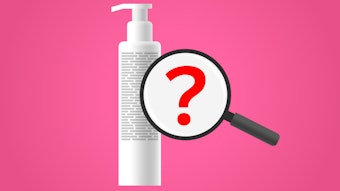A little while ago, I was involved in a public debate on the strenuous relationship between science and religion. Scientists often have difficulty accepting religion, as they find little evidence for the existence of a god. Oftentimes, people draw strength and comfort from their religion, especially in times of distress. Does this mean that belief in fiction, i.e. something for which there is no objective evidence, can lead to fact, i.e., strength and comfort—things that can be objectively measured?
Religious individuals see measurable facts as evidence of the truth of their faith, whereas scientists often argue that possible consequences cannot be taken as evidence for a fact. In the aforementioned debate, I was playing the role of the atheistic scientist, whereas my vicar was playing the role of the theologian. Not a completely fair debate, I argued, as I am a scientist but not an atheist, whereas my vicar was truly a professional theologian. Preparation for this challenging debate was made by reading Richard Dawkins’ The God Delusion to find arguments for the non-existence of God and the unscientific nature of (the Christian) faith. Dawkins provided logical reasoning that kept my thoughts positive for the following debate.
On the night of the debate, the vicar opened with, “Johann, you simply cannot prove religion. That is why it is called believing. If you prove it, there is nothing left to believe.” And with that remark, he killed the whole debate even before it had begun. Religion does not have to be proven by facts; believing is enough for those that believe. If you prove religion, it becomes science and is no longer a faith. Whether a scientist can accept to live with unproven beliefs is another issue altogether that will not be discussed here.
There is a connection with this religion discussion and cosmetics, and that connection is naturals. Naturals are the new (cosmetic) religion. There is no evidence for the superiority of anything natural, yet many consumers believe that natural products are better.
At a presentation in South Africa a couple of years ago, a presenter sang the praises of his natural glycerin. It was purportedly significantly better than synthetic glycerin to the extent that words were insufficient to describe its benefits. And of course it was derived from plants, since many natural product companies suggest that animal-derived ingredients are bad for humans. During question time, I asked him what experiment I should perform to distinguish a sample of his natural glycerin from my sample of synthetic glycerin. There was no reply. The body does not differentiate between plant-derived CH2OH-CHOH-CH2OH and animal-derived CH2OH-CHOH-CH2OH because both are the same. The body also does not differentiate between botanical plant-derived glycerin and chemical plant-derived glycerin. The source of the molecules is not remembered and therefore not important.
Recently, I gave a course on basic formulating in Bangkok, Thailand during In-Cosmetics Asia. The HLB concept of surfactants was discussed. During the coffee break, a woman approached me and asked what I thought of natural surfactants. I replied, "They exist," which amazed the questioner, who had anticipated I would sing the praises of natural surfactants. She argued that natural surfactants were better because they were natural, which I, as a non-believer in this "cosmetic faith" could not underwrite.
“Natural surfactants are better surfactants because they are natural” is a statement similar to “God exists because he exists.” One does not convince a non-believer with this reasoning. My first question was to her was “What is better?,” and the second was “What is natural?” The responses were: a natural surfactant does not irritate skin and is better for the skin, and that an ingredient with an endorsement from a natural qualifying bodies is natural.
On my follow-up question asking why natural surfactants did not irritate skin, the answer was “Because they are natural.” I explained that a surfactant is a molecule with a lipophilic and hydrophilic part in its structure that are spatially separated, causing it to have partial solubilities in oil and water and therefore solubilize oil in water or water in oil. The same structures also have a high probability of interacting with biological membranes such as phospholipids that have similar properties, which is the reason for the skin irritancy of surfactants.
The word natural does not pop up in this cause-and-effect explanation. Natural surfactants can also be irritating but don’t have to be irritating. Synthetic surfactants can also be irritating but do not have to be irritating. It's not that every natural surfactant does not irritate, nor that every irritating surfactant is synthetic. I asked this woman for scientific evidence that natural surfactants were milder, and she stated that they had to be as all major cosmetic firms were switching to natural surfactants. When I called this clever marketing, she called me a skeptic and ended the conversation. Obviously, I did not turn this believer into a non-believer, nor did she turn this non-believer into a believer, but it got me thinking how cosmetic scientists can even believe such non-scientific things.
In "When Scientists Sin," a recent Scientific American column, Michael Shermer asked what happens when scientists sin. He quoted Richard Feynman who said in 1974, “The first principle is that you must not fool yourself—and you are the easiest person to fool. After you’ve not fooled yourself, it’s easy not to fool other scientists. You just have to be honest in a conventional way after that.”
Shermer goes on to argue that some scientists do indeed sin. “Given the fiercely competitive nature of research funding and the hardscrabble intensity of scientific status seeking, it is surprising that fraud isn’t more rampant. The reason that it is so rare (compared with, say, corruption in politics) is that science is designed to detect deception (of one’s self and others) through collaboration, graduate student monitoring, peer review, experimental corroboration and results replication. The general environment of openness and honesty, nonetheless exists and in the long run weeds out the cheats and exposes frauds and hoaxes, as history has demonstrated itself,” he states.
Shermer's argument made me wonder whether cosmetic scientists that believe in naturals deliberately perpetrate fraud. I sincerely do not think so. They truly seem to believe that natural raw materials are better. When I make my usual joke of “Want something green, natural and organic? Try a green mamba!” they are not amused. After all, I’m ridiculing their faith but they cannot defend themselves.
This column's provocative title tries to link the evidence for the existence of God to the evidence for the claimed benefits of naturals. Nature is a source of interesting molecules that deserves investigating and exploiting. It can do tricks with stereochemistry that chemists often cannot master in synthetic chemistry, but I do not believe that salicylic acid from willow bark works any better than salicylic acid synthesized in a pharmaceutical plant. Believers in natural products often claim that the impurities in synthetic products cause their side-effects, but this argument is not discussing the product, rather the possible impurities. If impurities cause negative side effects, they will need to be removed and will be removed or such products would not be sold.
However, where the comparison between “believing in the good of nature” and “believing in the existence of a god” goes wrong is the fact that the existence of a god cannot be proven whereas the good of nature can. My vicar was right; proving the existence of God turns religion to a fact and believing is no longer necessary. But “believing in the good of nature” relates to science rather than religion and should therefore follow the rules of science.
The “good of the botanical plant” over the “good of the chemical plant” should be investigated and demonstrated before it can be claimed. But the same products and the same chemical entities must be compared. Of course, when synthetic chemistry cannot synthesize the same (read: the right) molecule, use the nature-derived one. When the natural product variant has no harmful impurities and the synthetic variant does, clean up the latter or use the former, but do not state that only the natural variant is good. The impurities in the synthetic one are not good. Unfortunately, scientific evidence is often not provided with natural claims. Just like religion, it plays on the subjective feelings of people and not on their logical thinking.
Why do people believe such things? Christopher Hitchens, a practiced logician trained in rhetoric, once said, “What can be asserted without evidence can also be dismissed without evidence.” It is time that the personal care industry removed natural claims to treat natural products for what they are—a fantastic store of interesting molecules. Some natural ingredients have good properties and some have bad properties. Due to the power of logical thinking, many in the modern world have lost their faith in the existence of a god. Many logical thinkers will also lose their faith in “the good of nature.” As Michael Shermer wrote, “Openness and honesty in the long run weeds out the cheats and exposes frauds and hoaxes.” History will hopefully soon demonstrate this. It is only a matter of time before naturals will return to what they really are—from supernatural to natural.
The viewpoints expressed in this column are those of the author and do not necessarily reflect those of Allured Business Media.










